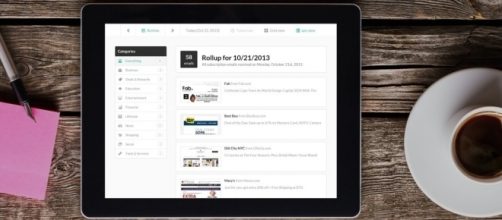The seemingly heroic and customer-friendly, not to mention free, service provided by Unroll.me has been found to be another attempt at selling your personally identifiable information to third parties.
The tactic of collecting and marketing the digital data collected from users has been under the investigation of the Federal Trade Commission (FTC) since 2014, when the commission found out that some companies were classifying user data into weird categories, such as “diabetes interest”, “smoker”, or “financially challenged”. It is too easy to imagine that such unchecked labeling used to treat customers unfairly in the financial and health sectors.
Another attempt to sell personal data
When Unroll.me introduced its first smartphone app almost two years ago for iOS, people still felt that they were being rescued from this slurry of unwanted newsletters and marketing propaganda. The easy-to-use, automated service offered a painless way of unsubscribing from all the services you no longer want—including the ones you have subscribed by “mistake.” That free service turned out to be used by the same data firm involved in Uber’s deceitful practices. Unroll.me has been doing more than what it campaigned for.
A ‘regular practice’ of data harvesting
The free unsubscribe service started as a test in 2011. In 2013, TechCrunch reported that the service had 100K subscribers already.
A Japanese company previously owned the company, Rakuten, before Unroll.me was bought by Slice Intelligence, a data-driven company that has been used by the ride-sharing Uber to spy on their rival secretly.
A data intelligence company, Slice is now in hot water for yet another privacy violation for the “regular Practice” of going through people’s inboxes for digital data, such as receipts and other personally identifiable information. The chief executive of Unroll.me, Jojo Hedaya, released a conflicting apology on the company’s blog.
He said that he could not stress enough “the importance of your privacy,” but then continued to claim that the data that they would “never, ever release” was completely anonymous and related to purchases only.
Jojo mentioned about the terms of service and privacy policy under which the free service had been operating, allowing the company to “collect, use, transfer, sell, and disclose non-personal information for any purpose” even “to build anonymous market research products and services.” He said that the information “weren’t explicit enough.” This type of misleading practice is not something new and has been described in various news articles, government reports as early as 2012.
Date brokers and your valued privacy
In FTC’s study of the data broker industry’ practices of collecting and using consumer data in 2012, the commission found that these practices were not done in transparency. The investigations have resulted in FTC asking Congress to consider regulating the practice because consumers should have the right to know what information was being collected about them, for what purposes, and to say no to such practices rightfully.
If these companies had been explicit about how they plan to use their consumers’ data in their marketing campaign, would they have gained such easy access to millions of consumer emails in the first place?

